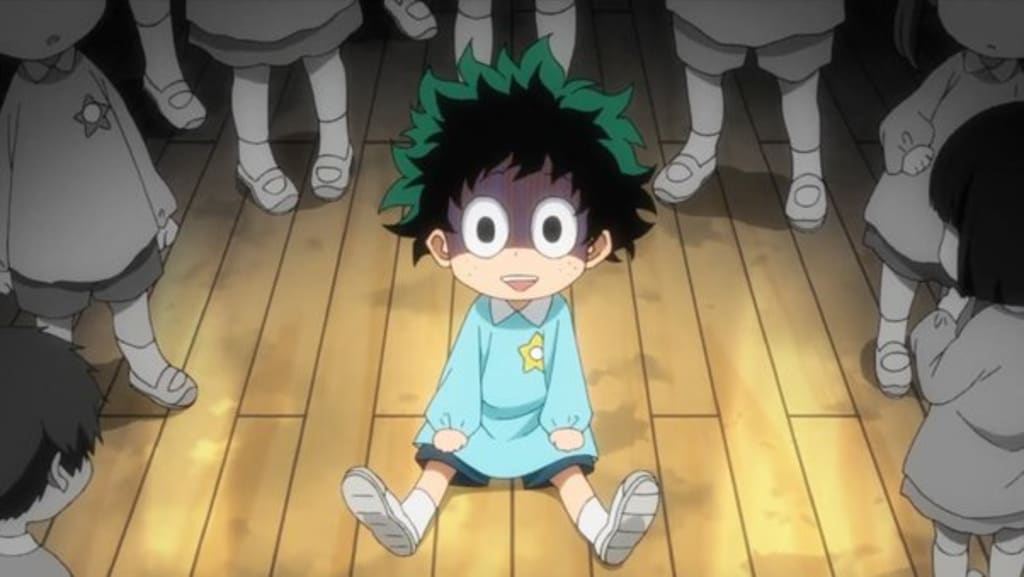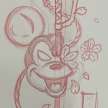The Ripple Effect
Analyzing the Hypothetical Outcome if Deku Did Not Receive One for All

"My Hero Academia," created by Kohei Horikoshi, is a tale of heroism, self-discovery, and the indomitable spirit of its protagonist, Midoriya Izuku. Central to the narrative is the Quirk "One for All," a power passed down through generations. However, what if the story took a different turn, and Deku did not receive One for All? This analysis explores the hypothetical outcome of such a scenario, delving into the potential narrative shifts, character dynamics, and the broader implications on the world of heroes and villains.
The essence of Midoriya's journey lies in his transformation from a quirkless individual to the inheritor of One for All. If Deku did not receive the powerful Quirk, the narrative would center around a protagonist navigating the challenges of a quirkless society. This shift would emphasize Deku's determination, intelligence, and strategic thinking as he faces adversaries with inherent superhuman abilities. The absence of One for All would force Deku to rely on his innate qualities and the knowledge gained from his idol, All Might. The narrative would explore themes of resilience, adaptability, and the potential for heroism without the crutch of a powerful quirk. The story would resonate with individuals who, like Deku, navigate a world where societal expectations are built around superhuman abilities.
The hypothetical scenario of Deku without One for All would significantly alter the power dynamics within Class 1-A and the broader hero society. Deku, lacking a formidable quirk, would no longer be the focal point of attention and rivalry. This shift could pave the way for other characters, such as Todoroki, Bakugo, or even lesser-explored classmates, to take on more prominent roles and challenges. The absence of One for All would redefine the parameters of strength and heroism in the story. Characters would need to rely on their individual quirks, skills, and teamwork to overcome obstacles. The narrative would delve into the unique qualities and struggles of each character, creating a more diversified and nuanced exploration of hero society.
The absence of One for All would necessitate a reevaluation of Deku's character arc. Instead of focusing on mastering a powerful quirk, the narrative would delve into alternative avenues for Deku's growth. Perhaps he would become a strategist, a mentor, or an advocate for the potential of quirkless individuals in a world dominated by superpowers. Deku's character development without One for All would explore the depths of his determination, intelligence, and leadership qualities. The narrative would highlight his journey to inspire others, proving that heroism is not confined to the possession of a powerful quirk. Deku's relationships with classmates, mentors, and rivals would evolve based on his unique contributions to the hero world.
The absence of One for All in Deku's journey would prompt the narrative to delve into the societal implications of a hero world without the symbolic power of the legendary quirk. The story would explore the prejudices and challenges faced by quirkless individuals, shedding light on the potential for heroism within this marginalized group. Deku, as a quirkless hero, would become a beacon of hope for those who face discrimination due to their lack of superhuman abilities. The narrative would question the established norms of hero society, challenging the notion that a powerful quirk is the sole criterion for heroism. The world would witness the emergence of a new era where heroism transcends the boundaries of quirks, emphasizing values such as courage, compassion, and resilience.
The absence of One for All would reshape the rivalries and alliances within Class 1-A and the hero society. Bakugo, without the intense rivalry with Deku fueled by One for All, might experience a different character arc. The focus on individual strengths and quirks could lead to alternative dynamics, with characters forming alliances based on complementary abilities and shared goals. The hypothetical scenario opens the door to exploring deeper connections and interactions between characters who might have taken a backseat in the original narrative. The absence of a central, overpowering quirk would allow for a more egalitarian distribution of narrative focus, Allowing each character to shine in unique ways.
The absence of One for All would also influence the dynamics between heroes and villains. Without the symbolic power that One for All represents, the League of Villains might need to adapt their strategies and objectives. The narrative would explore how villains perceive and challenge a hero society where the symbol of peace does not possess an overwhelming quirk. Deku's role as a quirkless hero could redefine the nature of hero-villain conflicts. The narrative might delve into the motivations of villains, exploring whether their grievances with society stem from the hero system itself or from deeper societal issues. The evolution of villain dynamics without the specter of One for All would contribute to a more complex and nuanced exploration of morality and justice.
The hypothetical scenario of Deku without One for All would redefine the parameters of success in heroism. The narrative would shift the focus from overpowering adversaries with a legendary quirk to achieving success through strategic thinking, teamwork, and resilience. Deku's victories would be measured by his ability to inspire, protect, and make a difference in the lives of those he encounters. The narrative would challenge the conventional notion of the "strongest hero" and prompt a reevaluation of the qualities that define a true hero. Success in heroism would be contingent on one's ability to navigate challenges, foster positive change, and uphold the values of justice. The story would become a celebration of diverse strengths and a testament to the potential for heroism within every individual, regardless of their quirk.
In the hypothetical scenario where Deku did not receive One for All, the narrative of My Hero Academia would unfold along an uncharted path, exploring themes of quirklessness, diversity, and the essence of heroism. The absence of a central, overpowering quirk would shift the narrative focus to individual strengths, character dynamics, and the societal implications of a hero world without the iconic symbol of One for All. Deku's journey without One for All would be one of resilience, determination, and the unwavering pursuit of justice in a society dominated by superhuman abilities. The story would resonate with individuals facing challenges in a world that often measures worth by the possession of extraordinary powers. My Hero Academia would become a tale of the extraordinary potential within the seemingly ordinary, celebrating the diverse qualities that make heroes, and the world they inhabit, truly extraordinary.
About the Creator
JRManglicmot
A Striving father and husband, trying to be the best I can be. I'm not perfect, but I try to be the one my family can look up to. I stumble and make mistakes from time to time, most often, but I try to learn from my mistakes.






Comments
There are no comments for this story
Be the first to respond and start the conversation.